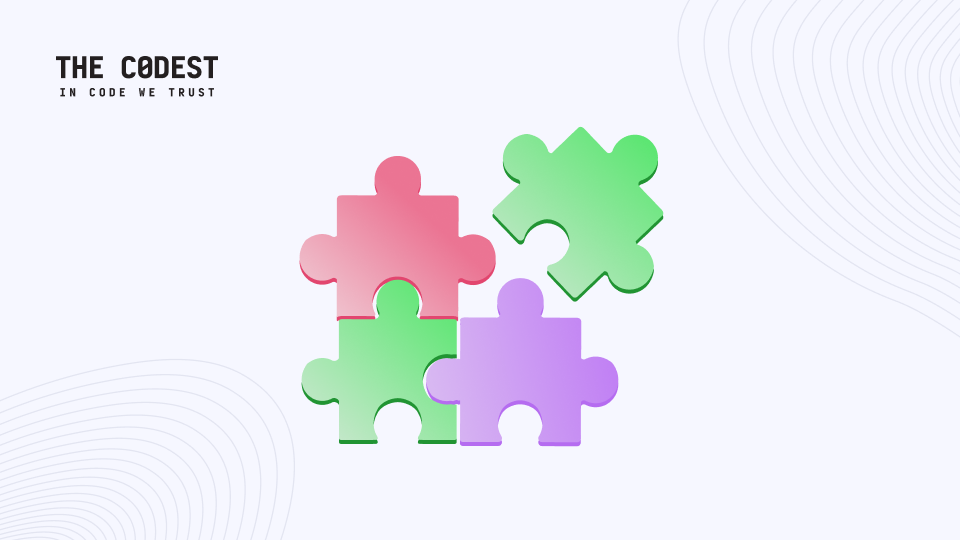Are you C-level and struggle with working smartly, effectively managing your time and meeting deadlines? This is a common problem. Happily, there is a solution: implement a proper approach, eliminate bad habits and become a more productive manager. Let’s do it!
The topic of managing your own time and increasing productivity is often addressed by managers who want to make the best use of every minute in their lives. Some time ago I was struggling with similar challenges. The number of tasks on my to-list exceeded the time I had available. I tested many solutions to help me become a more effective manager and it is these experiences that I would like to share with you in this article.
In my day-to-day work I am guided by a few basic principles that help me organize my time and increase my productivity.
Set goals
Start at the beginning. Defining your goals will be crucial. However, you have to plan this wisely and about what actions have a real impact on the development of your business. Make sure that you focus on what really translates into the growth of your products and generates revenue.
How to do it? Try the SMART method
1. Specific. At the initial stage, start by setting clear goals and defining what you want to achieve. The goals must be very specific and unambiguous. If possible, specify the numbers you want to hit. This will be a reference point that you can return to during the next stages.
2. Measurable. Define measures that will help verify whether you have achieved your goals. You must be able to check your progress to ensure that you are effectively implementing your plans.
3. Attainable. Your goals should be a challenge for you, but at the same time give real benefits. Find the balance between these two factors. Specify goals that you will be able to accomplish.
4. Relevant. What you strive for must make sense and help develop your products and stimulate business growth. This must be a step forward for you.
5. Time-bound. Set goals with specific time frames. It is important that the deadline for achieving goals is not too far away.

The Pareto principle
Only a small number of the tasks you do on a daily basis affect the effects you generate. That’s why I recommend focusing on tasks that will realistically improve the health of your products and business. First, take care of these tasks and remember the 80/20 principle.
How to do it? Use the Pareto principle
Write down all your tasks from the last month and think about how many of them have improved your business. You will very quickly notice, following the theory by Vilfredo Pareto, that only a small number of these tasks (20%) had a real impact on the development of your business. In the future, treat these activities as priorities.
Plan wisely
The Pareto principle is one of the approaches that will allow you to better manage your tasks. Smart planning is another factor that improves your efficiency and allows you to manage your time better. To be as effective and efficient as possible, avoid unnecessary distractions and try to focus on one task.
How to do it? Focus on what’s important
- Important and urgent. These are the tasks that you should prioritize. They have a strategic impact on your products. You should focus your energy on the most urgent tasks because your success depends on you.
- Important, but not urgent. These are also very important tasks, but after careful analysis, you may decide that they can wait a while. Prioritization, remember.
- Urgent, but not important. You may have a list of tasks to do and think you must do them asap but this is not always correct. These seemingly urgent things are probably not as important as other tasks waiting for you. Do not worry – do them later.
- Not urgent and not important. I do not have to explain this further. Do not do these tasks if you do not have the time. Simple.

Be able to say “no”
Everyone has something for you to do, with constant wants and asks. You know it, right? This is another factor that makes you lose productivity and fall behind on what you scrupulously plan, and consequently what you fail to achieve. It is time to say “no”.
How to do it? Be assertive
If you’re working on something important, tell people that you will contact them soon, but NOT NOW. You must learn to refuse the demands because distractions from other employees are one of the most common problems at work. Try to eliminate other distractions such as the internet or instant messaging.
Track your time
Time measurement is no less important, because you need to know how long it takes to complete specific tasks. You must be sure that you are not spending too much time doing these things. It is also a great source of knowledge for working on your own efficiency.
How to do it? Use the tools
At Codest we use a tool called Harvest to analyze our everyday work. It’s a simple and intuitive tool and helps clarify how much time you spend on specific activities. I’m sure you’ll like it.
Final words
I have described five really simple rules that help me. Every day I coordinate several teams and work with many people, and this approach simply works. I hope that you will try at least some of these tips and your work will also become much more effective.
Read more:








